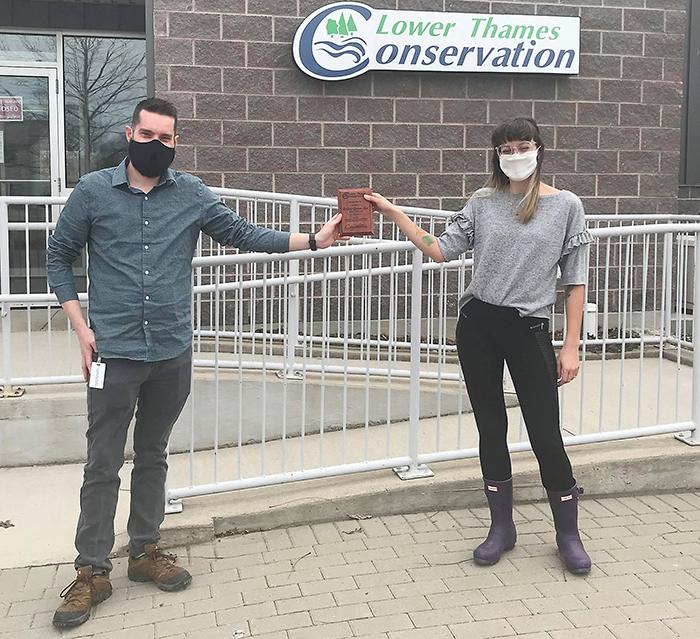
By Jenna Cocullo, Local Journalism Initiative
One Chatham-Kent resident has gone from appreciating nature to the point of supporting it by planting native plant species, and his work is getting noticed.
Mike Smith’s eyes were opened after attending a workshop put on by the Lower Thames Valley Conservation Authority (LTVCA) about “greening your yard.”
Expecting to learn something basic such as how to install a rain barrel, Smith instead sat through a presentation about the importance of native plants.
“That was a bit of a knock over the head even for somebody who considers himself to be an environmentalist, naturalist and ‘loves to be outside’ kind of guy,” Smith said. “I thought any plant is a good plant. That was a big eye opener. So I went home and worked out all of that stuff that was in the garden and replaced it all with native plants.”
That was back in 2019.
The presentation addressed the importance of planting species native to the land. For example, an oak tree or hickory tree provides a food source for the local caterpillars, moths and butterflies which in turn convert the energy of the plants as food for the birds, whereas a Norway maple tree has essentially nothing that eats it.
After the presentation and swapping out the plants in his backyard, Smith started an initiative known as ReLeaf Chatham-Kent.
Smith’s ancestors set foot in Merlin decades ago and the first thing they did was rip out the surrounding land to build a sawmill. Feeling responsible, Smith felt a need to replant the trees that were supporting Chatham-Kent’s wildlife.
Smith found a single acre of land by North Buxton, about 10-kilometres from where the original Smith family business was, and started planting 600 trees.
ReLeaf also hosts a variety of fundraisers, native tree auctions, T-shirt sales, and holiday ornament sales. The proceeds go to charities that support Indigenous causes, the Buxton Museum and to the Sydenham Field Naturalists.
In January, the group celebrated its anniversary with its first ever Annual General Meeting, and in February Smith received an Environmental Stewardship award from the LTVCA for his work.
“I was obviously very surprised and humbled to be recognized, and was so happy to see that they included the group itself on the plaque because I really think it is due to our collective efforts that we have been so successful,” Smith said.
The Facebook group now has more than 700 members and more than 200 of them attended the virtual AGM.
According to World Wildlife Fund Canada, there are 600 animal and plant species at risk throughout the country, and 125 reside in the Carolinian Zone, in which Chatham-Kent is smack in the middle.
“Individual actions make a huge difference. The vast majority of land is privately held. This means when we have the option to replace turf grass with prairies or forests, we should be doing that so our property contributes ecosystem services instead of requiring inputs like fertilizer and pesticide to maintain a sterile, non-native landscape,” Smith said.






